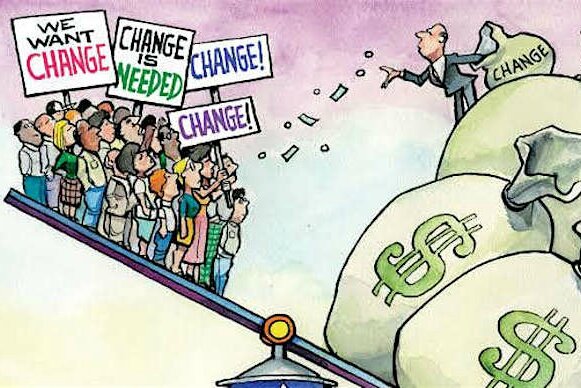
Capitalism and extreme poverty
A global analysis of real wages, human height, and mortality since the long 16th century
Highlights
-
The common notion that extreme poverty is the “natural” condition of humanity and only declined with the rise of capitalism rests on income data that do not adequately capture access to essential goods.
-
Data on real wages suggests that, historically, extreme poverty was uncommon and arose primarily during periods of severe social and economic dislocation, particularly under colonialism.
-
The rise of capitalism from the long 16th century onward is associated with a decline in wages to below subsistence, a deterioration in human stature, and an upturn in premature mortality.
-
In parts of South Asia, sub-Saharan Africa and Latin America, wages and/or height have still not recovered.
-
Where progress has occurred, significant improvements in human welfare began only around the 20th century. These gains coincide with the rise of anti-colonial and socialist political movements.
AI generated version
Capitalism and extreme poverty: A global analysis of real wages, human height, and mortality since the long 16th century
For a long time, the conventional wisdom was that poverty was an inevitable part of human existence until the advent of capitalism. However, recent research shows that this may not be entirely accurate. A global analysis of real wages, human height, and mortality since the long 16th century suggests that extreme poverty was not as widespread as previously thought and arose mainly during periods of severe social and economic disruption, particularly under colonialism.Real wages are a better indicator of the purchasing power of labor, and data on wages indicate that poverty was not as common historically. The rise of capitalism, on the other hand, was associated with a decline in wages, a deterioration in human stature, and an upturn in premature mortality. These trends were particularly pronounced in South Asia, sub-Saharan Africa, and Latin America, where wages and/or height have still not recovered.It is worth noting that progress in human welfare did not begin until the 20th century, coinciding with the rise of anti-colonial and socialist political movements. In many parts of the world, the gains have been significant, but the benefits have not been distributed evenly. Inequality remains a persistent issue, and some regions continue to struggle with poverty and underdevelopment.The prevailing narrative that capitalism is the only viable path to economic development has been called into question by these findings. They suggest that we need to rethink our assumptions about economic systems and recognize that access to essential goods and services is just as critical as income. We must also acknowledge that political movements that challenge the status quo can play a vital role in improving human welfare.In conclusion, the relationship between capitalism and extreme poverty is more complex than previously thought. The rise of capitalism was associated with significant social and economic disruption, and progress in human welfare has been uneven. We must continue to question the prevailing narrative and work to create a more equitable and sustainable world.